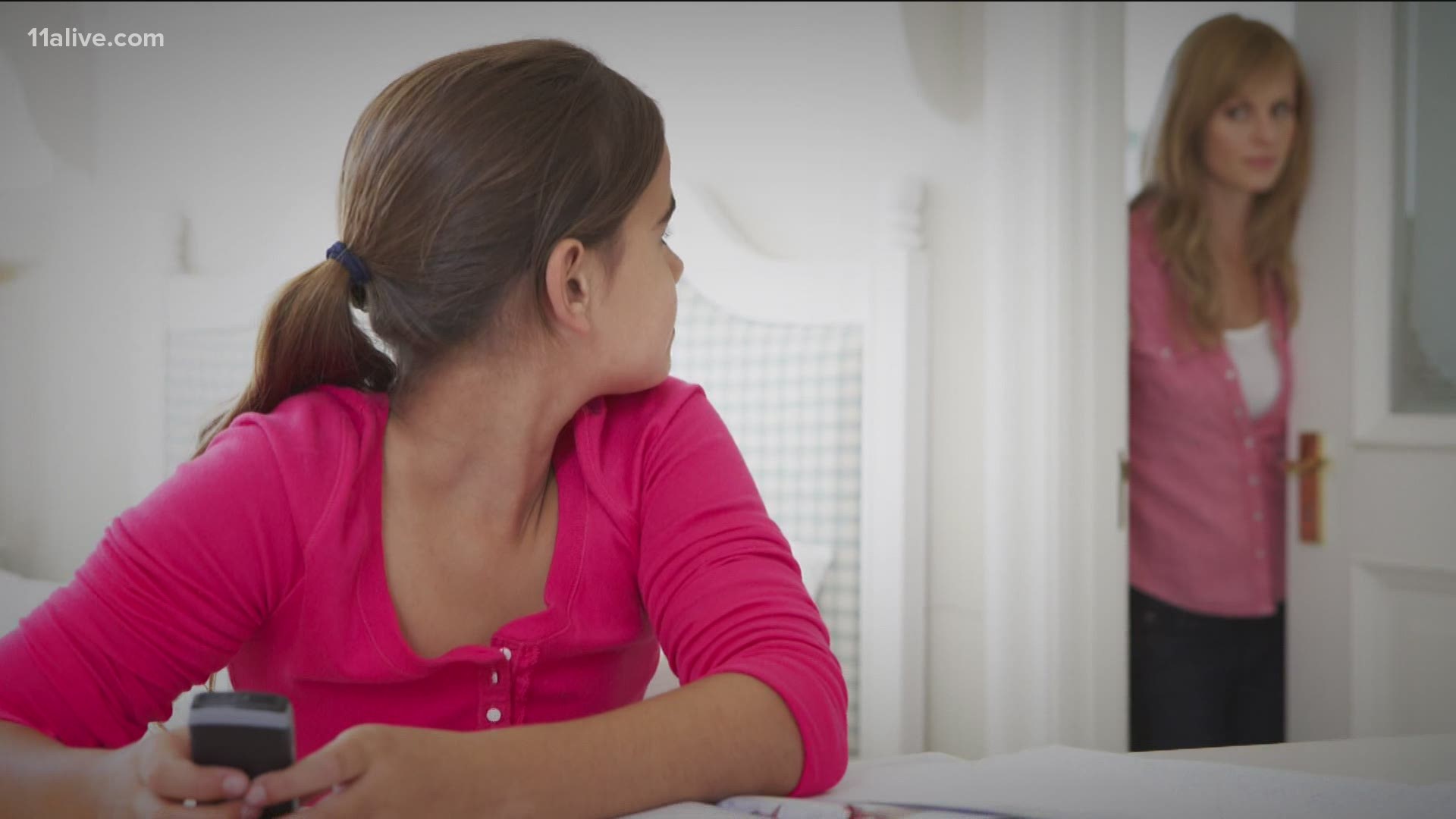ATLANTA — From the graphic images on TV to information circulating on social media, the fall from last week's attack on the U.S. Capitol continues.
"I immediately felt sick to my stomach," Maleeka Hollaway said when she learned of the attack. "Because I just couldn't understand. Is there this much dissension and this much hate happening to where it's come down to this?"
But as adults work to digest all that unfolded, what about kids?
Holloway, an Atlanta mom, now has to explain the Capitol siege to her young daughter. Debbie McLaughlin, a local parent of three girls, ages 10, 11, and 13, is in a similar situation.
"For me, it was just sadness, shock," McLaughlin told 11Alive. "When the older girls came home, we sat down to talk about it because I knew they were going to talk about it in school the next day," she said. "We were in D.C. a couple of years ago ... so I think it was real for them seeing it on TV and then knowing they were there."
Talking through such current events is no easy task for parents.
"It's finding that balance of what do they really need to know right now," Holloway said of discussions with her 9-year-old.
11Alive reached out to Jody Baumstein, licensed therapist with Children's Healthcare of Atlanta's Strong4Life, for tips to help parents navigate it all.
The basics? Baumstein recommends keeping conversations honest yet age-appropriate.
"With young kids, we are going to keep it short and sweet," she said. "Keep it to the facts, tell them what they need to know."
But Baumstein said not to be surprised if younger children don't have much to say.
"They might have no response after a big event, and that's ok too," she said. "Then, a couple of days later they're hearing more things and start to have questions."
Baumstein recommends following your child's lead, initiative conversations by asking what your child knows. For younger kids, experts also recommend limiting details and avoiding graphic images during such discussions.
For older kids, however, Baumstein recommends a different approach.
"Older kids have more information, have more questions," she said, adding that they're often seeing more information, and in some cases, misinformation, on social media and other outlets.
"We want to take that opportunity to engage with them around it," Baumstein said.
Talking to older kids means validating their feelings, Baumstein said, while also acknowledging it's ok to disagree on topics. She said it's an opportunity for parents to really role model a discussion with their child.
At the same time, such current events are leaving many adults emotionally drained. So Baumstein recommends families lean on expert resources and know they're not alone.
According to Baumstein, it's a chance for the whole family to practice coping skills.
"We can't change what's happening necessarily," she said, "But it is an opportunity. How do we manage emotions? How do we navigate stressful times in healthy ways?"
For more information, check out Children's Healthcare of Atlanta's Strong4Life tips here.

